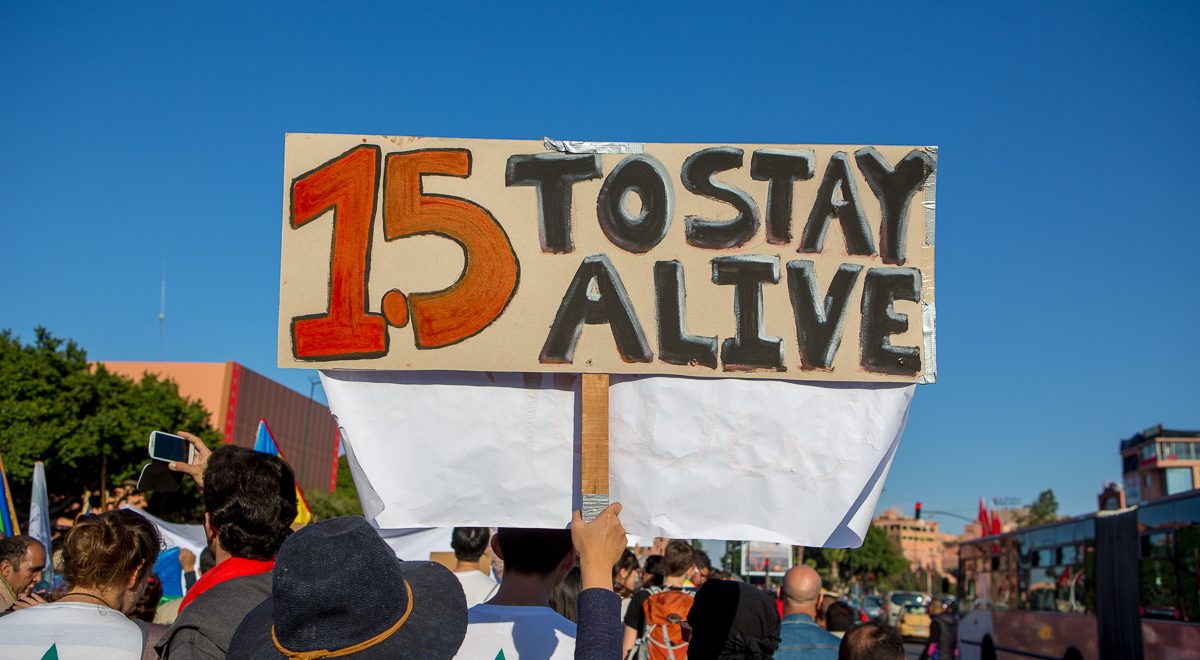On Earth Day, the Biden administration is hosting a “Leaders’ Climate Summit” with heads of state from around the world. This follows President Biden’s Day One act of rejoining the Paris Agreement on climate change. As part of rejoining the Paris Agreement, the United States is expected to submit a revised pledge, or “Nationally Determined Contribution” (NDC), stating what it will do to combat climate action. The Biden administration is likely to announce the outlines of a new U.S. NDC in advance of, or during, the Leaders’ Climate Summit.
Today, ActionAid USA joined other climate, environment, and development groups in releasing a Fair Shares NDC for the United States. The Fair Shares NDC sets a benchmark for evaluating the Biden administration’s revised pledge. It lays out a top-line target, and policies to meet that target, that would comprise a U.S. commitment to climate action that would actually take seriously our massive obligations to the rest of the world. Anything less than what is outlined in the Fair Shares NDC would be unfair to the global community and would keep the world off track from avoiding global temperature rise well above 1.5 degrees Celsius – the point at which catastrophic climate impacts are almost certain to ensue.
According to the analysis that provides the basis of the Fair Shares NDC, the United States must commit to the equivalent of 195% reductions in greenhouse gas emissions by 2030 compared to 2005 levels. That’s about 14 gigatonnes (billion metric tons) of greenhouse gases annually by 2030. In order to reach this goal, the United States should aim to do two things:
- cut emissions by 70% by 2030 (about 5 gigatonnes annually), and
- support developing countries to reduce their emissions by an additional 9 gigatonnes annually by 2030 – thus making up the remaining 125% of our 195% target.
(For perspective, NASA compares 1 gigatonne to 10,000 fully-loaded U.S. aircraft carriers.)
We worked through a variety of methodologies to figure out what that 125% target for international support would look like if we converted it into dollars. The answers vary widely, but all credible estimates are in the trillions. In the Fair Shares NDC, we call on the United States to commit to providing $800 billion in public climate finance for the period 2021-2030, as a down payment toward a fair share that is in reality much larger.
This $800 billion target includes finance for emissions reductions and equal amounts for adaptation and addressing loss and damage. Importantly, it includes public finance only. The Biden administration is likely to play up any number of voluntary private-sector initiatives during the Leaders’ Climate Summit, but financing schemes led by private investment will not reach the most vulnerable nor will it tend to give us climate solutions that are just, equitable, human-rights-based, or sustainable.
We recognize that international mechanisms like the Green Climate Fund need continual improvement in order to equitably and effectively distribute money at this scale. The Fair Shares NDC further commits the United States to strengthening such institutions, supporting global processes to better determine the financial needs of developing countries regarding adaptation and addressing loss and damage, and scaling up future financial commitments to match those needs.
The 195% target stands in sharp contrast to the target of 50% emissions reductions by 2030 – with no stipulations around international finance at all – that some in the environmental community are calling on the Biden administration to commit to in its NDC. A 50% by 2030 target might sound strong, but it is utterly incompatible with both a fair-share analysis and with the 1.5 degree goal. Much greater ambition is needed from the United States if we are to avoid climate injustice on a catastrophic global scale.
The Fair Shares NDC lays out a series of actions the Biden administration can take, and policies that Congress can implement, in order to meet the massive level of action required of the United States. We recognize that these are huge, transformational changes. But we know that nothing less is needed in this moment. And we also know that if there was ever a moment when these changes are achievable, this is it.
U.S. politicians are rightly considering multi-trillion-dollar Covid-19 relief and infrastructure packages in order to stimulate a just recovery from the pandemic and all the other crises we are living through. These policy packages, which will provide immediate and concrete improvements to the lives of everyday people in our country, are absolutely essential. Climate action should get no less attention, and policymakers must be willing to think big and go beyond the austerity politics that have dominated our country for decades.
Without climate justice, we cannot win or sustain the societal changes we need, and the improvements we seek for people’s lives, especially those most marginalized and oppressed. And achieving climate justice requires nothing less than the ambition, the urgency, and the focus on social justice, represented by the Fair Shares NDC.

